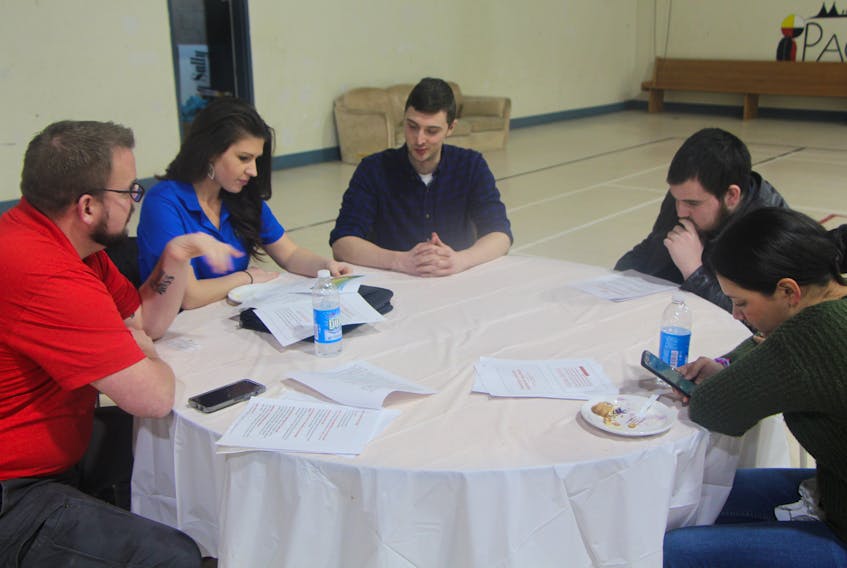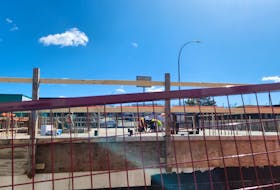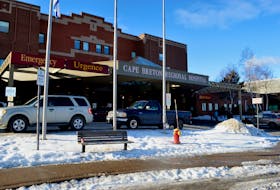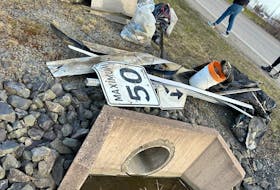With the recent opening of a new interchange and business opportunities blooming on a local level, Paqtnkek Mi’kmaw Nation is taking steps toward a new, more locally-determined model of land use to accommodate its growth.
The first steps toward change entailed a meeting at the Paqtnkek Gymnasium on Feb. 20, where community members were consulted about potential changes to the land code.
“This may be a major milestone for our community. It’s a process that entitles bands to eventually take over management of their reserve lands,” said Chief Paul ‘PJ’ Prosper. “Currently, the Indian Act administers land management within reserve communities throughout Canada.”
Prosper noted a number of bands across Canada have made applications to take over land management, and Paqtnkek is considering taking that direction as well.
He alluded to the recent success of Membertou First Nation in creating a localized land code.
“They have approved their land code, so it’s quite significant and will help future development of their lands,” Prosper said. “As we get into commercial developments, if we have the capacity, we’re not relying upon the federal government and it will allow things to take place at the speed of business.”
“Essentially, what that would mean is 32 provisions of the Federal Indian Act relating to what they view as lands reserved for Indians – we’d essentially take that responsibility, and would move it from Indian Affairs and Indigenous Services Canada to the band.”
Paqtnkek is looking to build capacity to manage its own reserve lands, Prosper said, noting the event on Feb. 20 was the first step in that.
“It will hopefully end in an eventual vote from the community members, both on and off-reserve, on the essential question of whether or not they would like the band to administer the management of their own lands through the land code, which is our mechanism to manage land,” Prosper said.
The consultation about land use was one of two separate community meetings at the Paqtnkek Gymnasium.
Before the land use meeting, two research partners visited, presenting findings that may influence the future of land use in the community.
Representatives of the Mi’kmaw Conservation Group from Truro, and the Applied Geomatics Group from Lawrencetown spoke to community members on the local impacts of climate change.
The groups, Prosper noted, are undertaking a study looking at the potential impacts of climate change in Paqtnkek and Walnek, a traditional meeting place near Paqtnkek.
The Mi’kmaw Conservation Group is associated with the Confederacy of Mainland Mi’kmaw, Prosper noted, adding, “they did research about year ago, on addressing potential implications related to climate change and band assets.”
Implications studied by the Mi’kmaw Conservation Group include a number of local land features in the community, such as, “a river that goes through the community where erosion concerns have risen over the past number of years,” Prosper said.
“We were able to draw on that expertise from them,” Prosper said. “The first part of the day involved them presenting their research methodology and their findings.”
Both groups have expertise on modeling the effects of climate change, he added.
While Prosper spoke to the Casket, the guests and participants in the event were arranged at round tables, meant to aid in discussion. An integral part of the climate change discussion came from conversation. Community members were asked for their input on possible ways to address the effects of climate change in Paqtnkek.
“It was a process of getting data on the use of our lands, not only today, but in the past,” Prosper said. “We combined that with community input to create more comprehensive information.”









